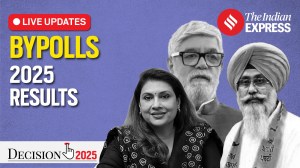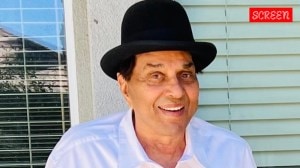US should release N-deal answers, say experts
Several nonproliferation experts called on US State Dept to drop what they called a virtual 'gag' order on N-deal with India.

Four US nonproliferation experts on Wednesday called on the Bush administration to make public comments about the U.S.-India civil nuclear deal that it gave to US lawmakers on condition they be kept secret.
The State Department responded to congressional questions about the deal and, after initially discussing classifying the answers, gave them to a small group of lawmakers on condition they not be released, sources familiar with the matter said.
Critics of the deal, which would give India access to nuclear fuel and equipment for the first time in three decades even though New Delhi has tested nuclear weapons and refused to join nonproliferation agreements, demanded the State Department drop what they called “a virtual ‘gag’ order.”
The four nonproliferation experts — Daryl Kimball, Fred McGoldrick, Henry Sokolski and Sharon Squassoni — made their appeal in a statement released on Wednesday.
“The administration’s responses should be made publicly available so that US and Indian lawmakers and the public can evaluate whether the draft U.S.-Indian accord conforms to the terms and conditions established by Congress,” wrote Kimball, executive director of the Arms Control Association.
“The administration’s unwillingness to make their answers more widely available suggests they have something to hide from either US or Indian legislators.”
The State Department said the U.S.-India civil nuclear agreement complied fully with US law and the administration had provided extensive briefings to Congress on the matter, including public testimony by top State Department officials.
“We’ve handled answers to sensitive questions in an appropriate way that responds to congressional concerns. We’re going to continue with that approach,” State Department spokesman Tom Casey said.
WINK AND A NOD
Proponents argue the deal will be the cornerstone of a new strategic relationship between the two nations.
But some Indians feel it infringes on their country’s sovereignty, while some nonproliferation advocates believe it undermines the global system designed to prevent the spread of nuclear weapons.
Jon Wolfsthal, a nonproliferation expert at the CSIS think tank in Washington, said it was possible the Bush administration did not want to release its answers for fear that they might make it harder for the agreement to win approval in India.
“But even if that is the case, it would raise concerns,” Wolfsthal said.
“We always get into trouble when we get into secret agreements or wink-and-a-nod agreements,” he added. “If the Indian political system isn’t willing to support a deal that has certain restrictions, then we shouldn’t be getting into such an agreement. It isn’t sustainable.”
The deal is caught up in Indian domestic politics, with the communists who shore up the coalition government led by the Congress party threatening to withdraw support if it is pushed through.
Among other things, members of the US Congress asked the State Department to clarify whether Washington would cut off nuclear trade with India if New Delhi resumed nuclear testing.
The United States is required to do so under US law but the U.S.-India civil nuclear cooperation deal does not make this explicit. Rather, it gives either side the right to terminate cooperation for any reason with one year’s notice.
There are growing questions about whether the agreement can go through before US President George W. Bush leaves office in January 2009.
To take effect, it must clear three hurdles.
India must reach an agreement with the International Atomic Energy Agency to place its civilian nuclear reactors under U.N. safeguards and it must get clearance from the 45-nation Nuclear Suppliers Group that governs global civilian nuclear trade.
After those steps, the deal must secure final approval from the US Congress, where it enjoys bipartisan support but where the Nov. 4 election leaves little time to pass it.





- 01
- 02
- 03
- 04
- 05


























